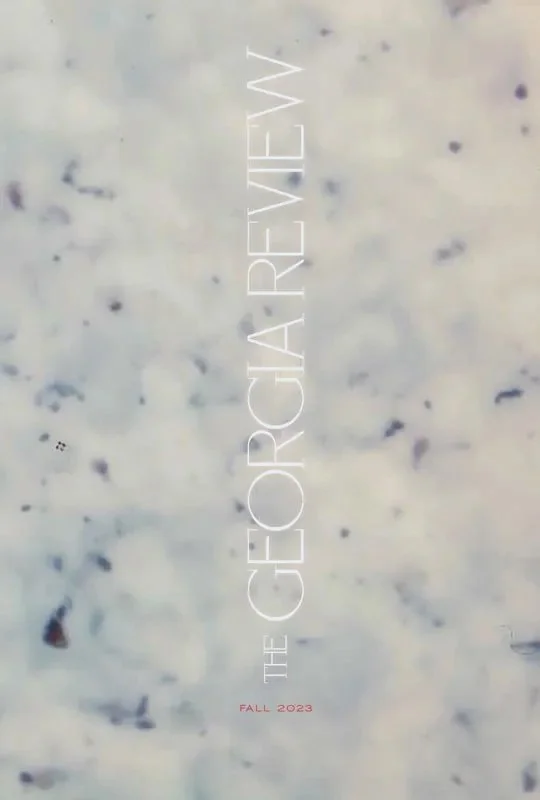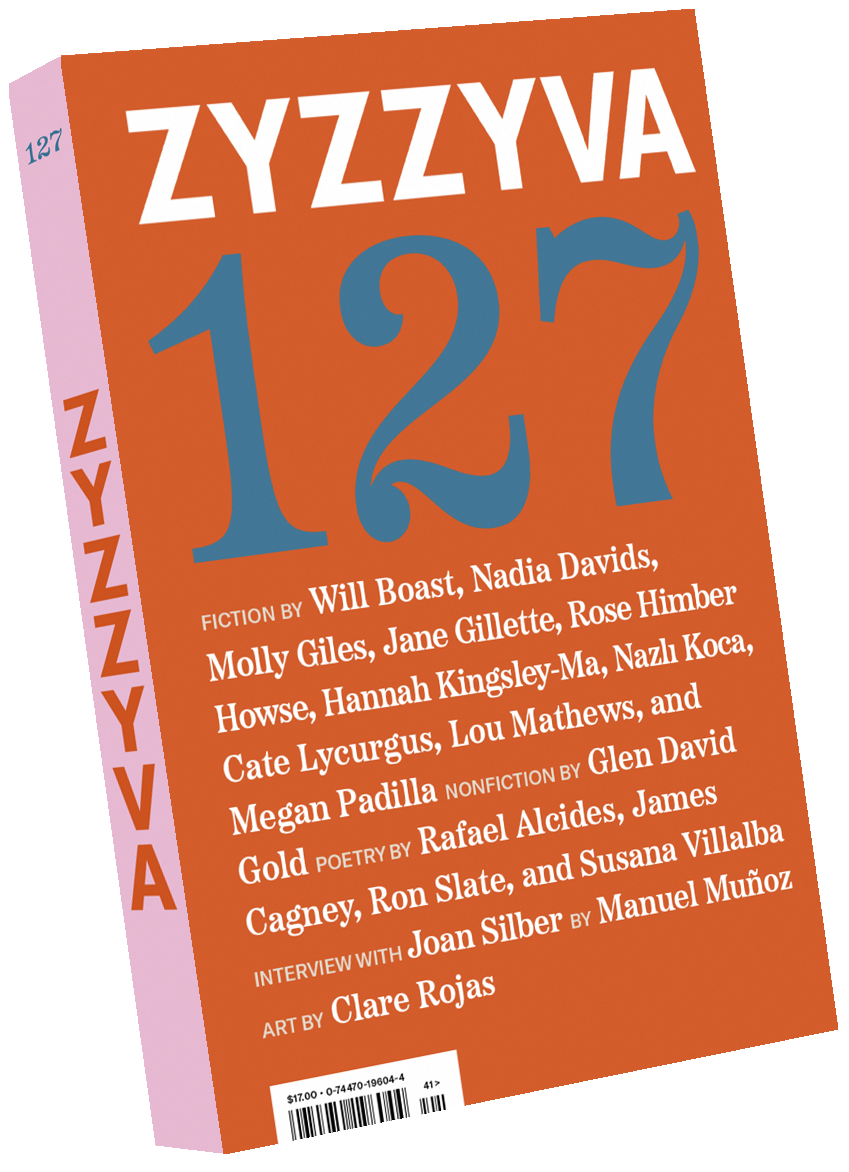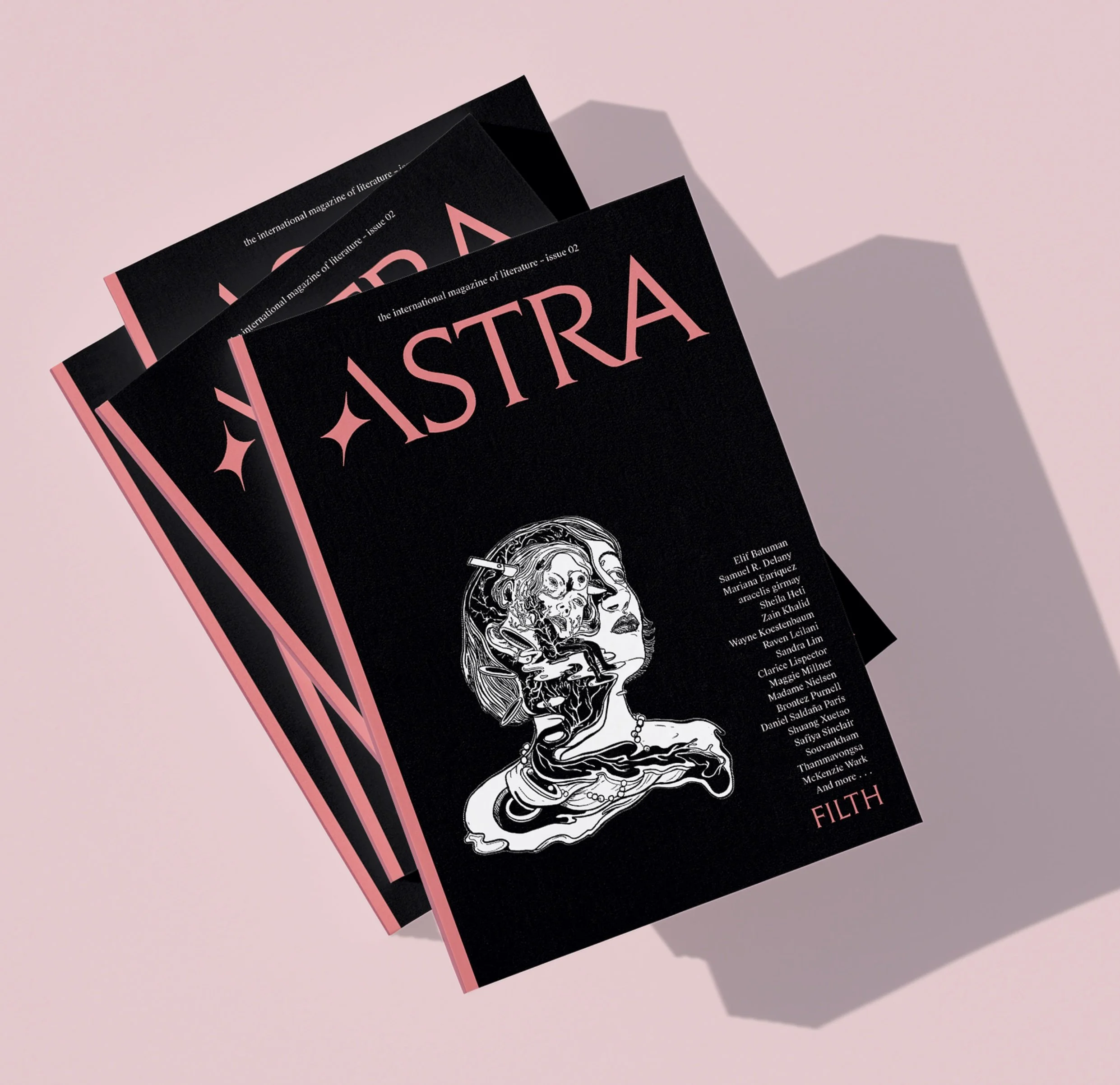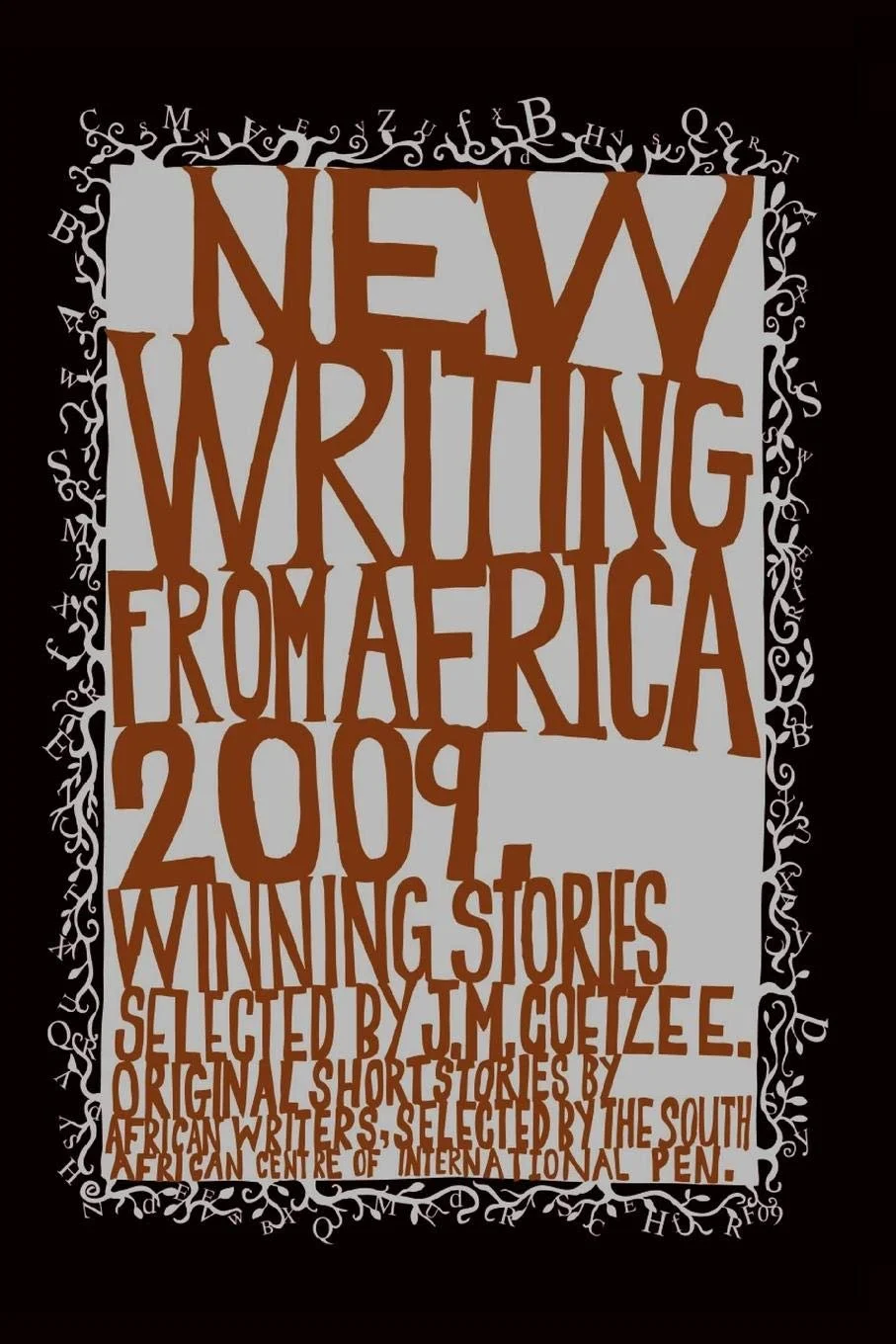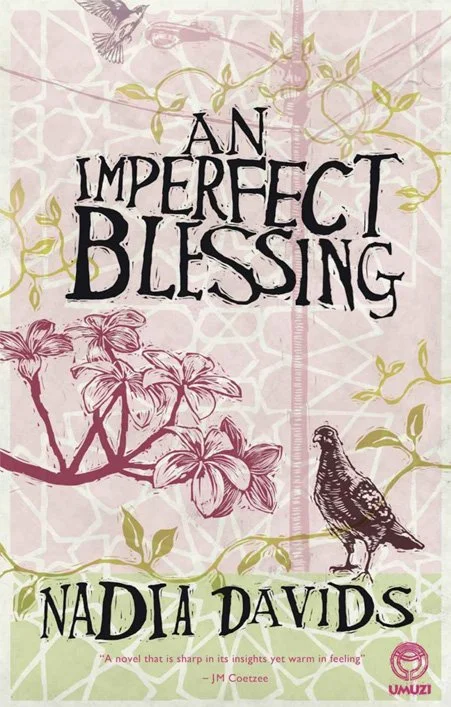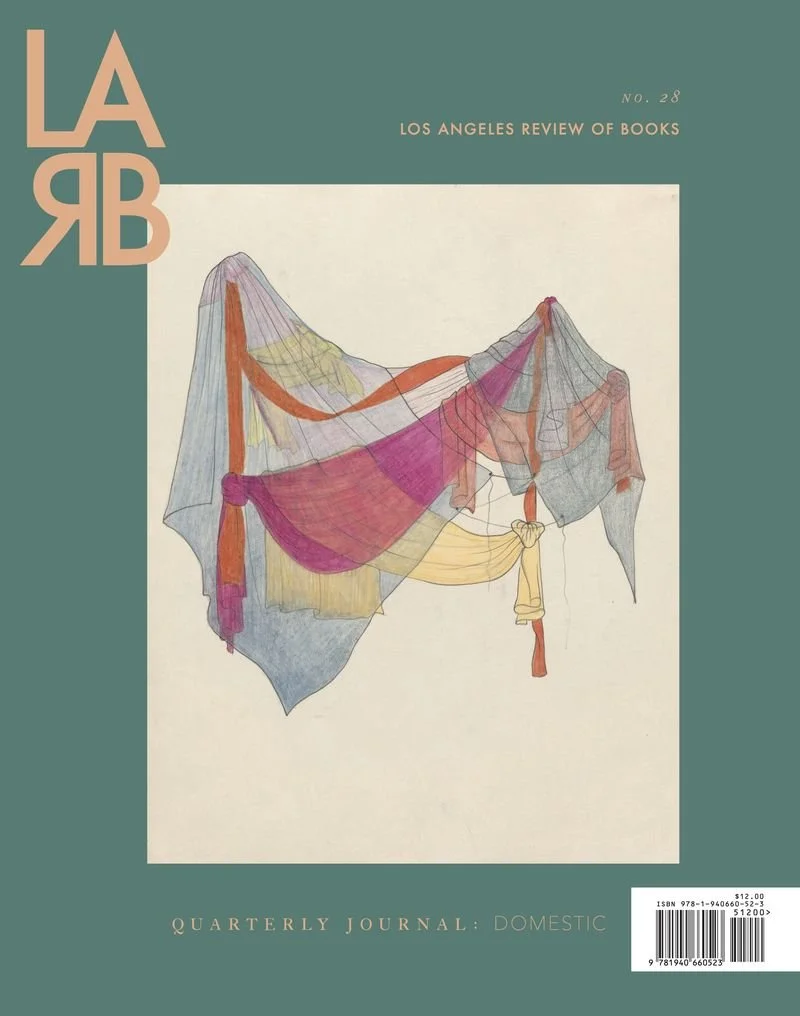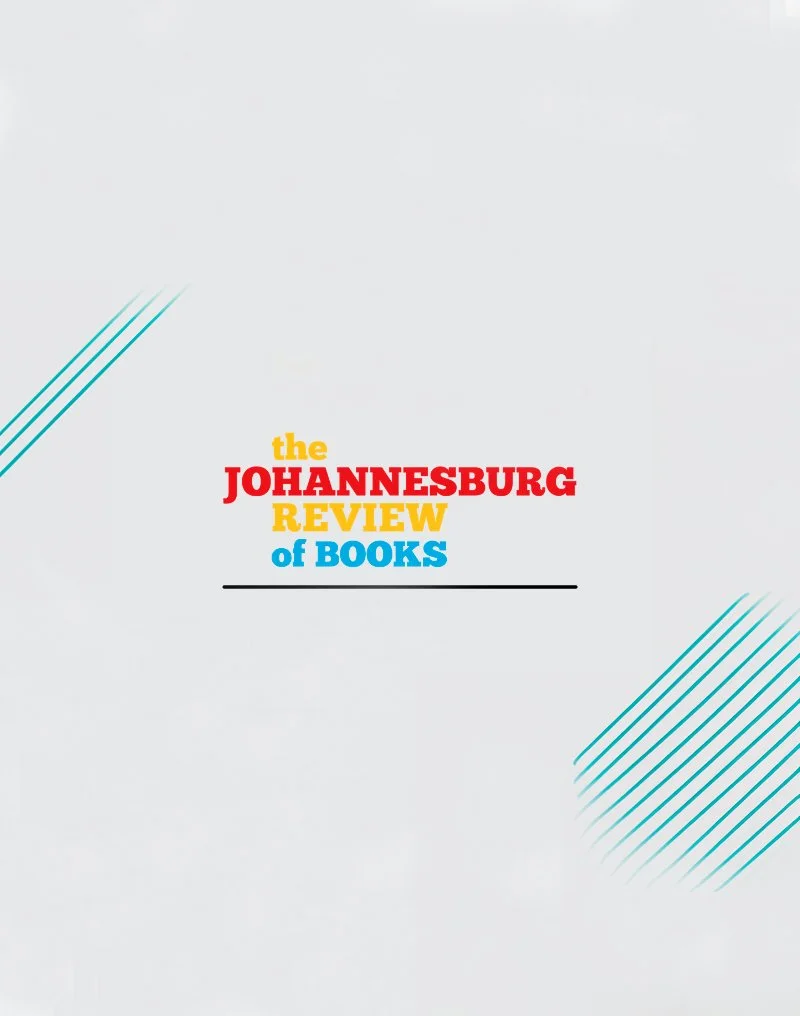FICTION
BRIDLING
“The Caine Prize for African Writing is delighted to announce that South African writer Nadia Davids has been awarded the 2024 Caine Prize for African Writing for her outstanding short story, Bridling, published in The Georgia Review in 2023. “
National Magazine Award for Fiction Finalist
The Georgia Review was honored to be a finalist for the 2024 American Society of Magazine Editors (ASME) Award for Fiction with stories published in the 2023 volume year: “Shipwreck” by Yiru Zhang, “Mother, Marksman” by Ernie Wang, and “Bridling” by Nadia Davids.
“The main idea is this: we, a company of women performers, will stage various artworks by men (and men only) depicting women. We’ll create facsimile tableaus of the works, remaining absolutely still while audiences walk around the staging area viewing us as though we are an exhibition.
“We are literally Live Art,” an actor we all call Medusa said earlier during her costume fitting. The director responded that the work is, in fact, “intersectional,” which Medusa translated when he was out of earshot as “A bit of theater. A bit of museum. A bit of discomfit for everyone involved.”
A (slightly surreal) story about women, artworks, performance and the ghosts of resistance.
BIG CLIENT DAY
“Rafiq decides that Dada will come with him to Constantia, to the house viewing […] let that whitey even try to say he couldn’t bring his grandfather. He’d visited Dada at that damn factory every Friday after school for years. Now he would show the old man his work—take him to a magnificent house, allow them both to feel a quiet glow, a sense of arrival, a moment of generational witnessing, the achievement not just for himself, but for them all. See?! See how the arc of the universe bends toward justice?”
A follow-up to SURF BOYS, In BIG CLIENT DAY Rafiq is married, in his thirties, a real estate agent, living the post-Apartheid POC dream; a house in previously white suburb, a smart car, children at expensive schools, space for his grandfather, Dada, to love with them. The present is perfect and future-focused. But if you’re in the business of buying and selling land and property, you’re in the business of history…
SURF BOYS
“You could be a lot of things around Rafiq, but you couldn’t be boring. If you were boring, you could be left stranded on the curb. He would not pitch to give you that lift he promised, or he’d give you a miss at the movies. I didn’t see you, he’d shrug. And what is there to say to that? If someone says they didn’t see you, they didn’t see you, and no amount of standing in front of them waving your arms is going to change that.”
Cape Town, late nineties, college boys, old friendships, new freedoms, navigating a racially-divided city, chasing highs and keeping secrets.
this is your face
“You’re ambitious, you girls, steeped in ambition, crawling with it, clinging to it. The ones who come to university always are, even the ones who are terribly quiet in class, even the ones who use shyness as a way of getting attention, even (especially) the ones who pretend to have no ambitions at all, because the work it takes to cover that up and be unthreatening means they are serious enough about getting ahead to hide it.”
A feminist professor forms an inexplicably strong attachment to one of her students.
THE VISIT
“I said, “I’m going to see Hassan next week.” My husband didn’t say anything he just wiped his hands very slowly on his serviette. My daughter’s eyes went big in her head because we don’t usually talk about Hassan in front of her, and my other son slammed his Coke down so hard a few drops went on the tablecloth and he said, “Mommy, are you crazy!?”
I just thought, I am going to play this very calm, and I said, “No, I am not crazy but I am going.”
In the aftermath of 9/11, a mother travels from Cape Town to New York City to visit her son and find out why, after he fled Apartheid South Africa as a teenager, he has never returned home.
AN IMPERFECT BLESSING
Nadia Davids’ first novel moves seamlessly across generations and communities, through the suburbs to the city-centre, from the lush gardens of elite private schools to the dingy bars of Observatory, from landmark mosques and churches to the manic procession of the Cape Carnival, through evictions, rebellions and political assassinations, via legendary clubs to first loves. An Imperfect Blessing places one family’s story at the heart of a country’s rebirth and asks big questions about faith, race, belonging and freedom. An Imperfect Blessing is a vibrant, funny and moving debut.
“One of the things the novel does best is to trace the impact of historical events on the lives of ordinary people. In An Imperfect Blessing, a novel that is sharp in its insights yet warm in feeling, Nadia Davids gives us the tumultuous years between the end of white rule in South Africa and the Mandela presidency as seen through the eyes of a family from a Muslim community that is itself coming under pressure to adapt and evolve.”
-JM Coetzee
“A poignant evocation of Cape Town in the last of the apartheid years. With subtlety, compassion, and a brilliant blending of the personal and political, Davids’s debut novel traces the lives of a family shaken by the complexities of the struggle.”
-Zoe Wicomb
ESSAYS
THE BE-HEADING of rhodes in cape town
“That night, the unlit skies were wild with wind and hail, the forest full of skittish creatures, and that neoclassical building — the stuff of imperial fantasy — set like a stone temple on the slopes of the eerily named “Devil’s Peak.” To this place, someone arrived armed and ready for their private rendezvous with history. There was no public de-plinthing, no tumbling into a river, no triumphant crowd. Instead, it has remained anonymous; a secret between the statue and the person.”
DOES MY CHEST SOUND TIGHT TO YOU:
The first 40 days; notes on a South African lockdown
“Your six year old calls out a greeting to the little girl who, not much older than him, is so much older than she should be. It's early in the lockdown, they're not wearing masks and you wonder if they've heard about what's happening. You talk to them about the virus and tell them you'll set a bag down, asking that they stay back until you've managed to get a few feet away. They look at you as though this is not a sensible health measure but another indignity.”
It began with a burial site
“Cape Town’s dark beginning has cast a long and chilling shadow on its present: the morphing of slavery into colonialism and later apartheid has made it a city where, famously, natural beauty exists in stark contrast to deep and abiding disparity. And it’s a disparity that not only narrates a terrible history but also allows for a certain kind of protected ‘unknowingness’: it is possible to be of and from this place and not have to negotiate its past, not have to recognise its present. It is possible to do that until the past erupts and demands to be listened to.”
